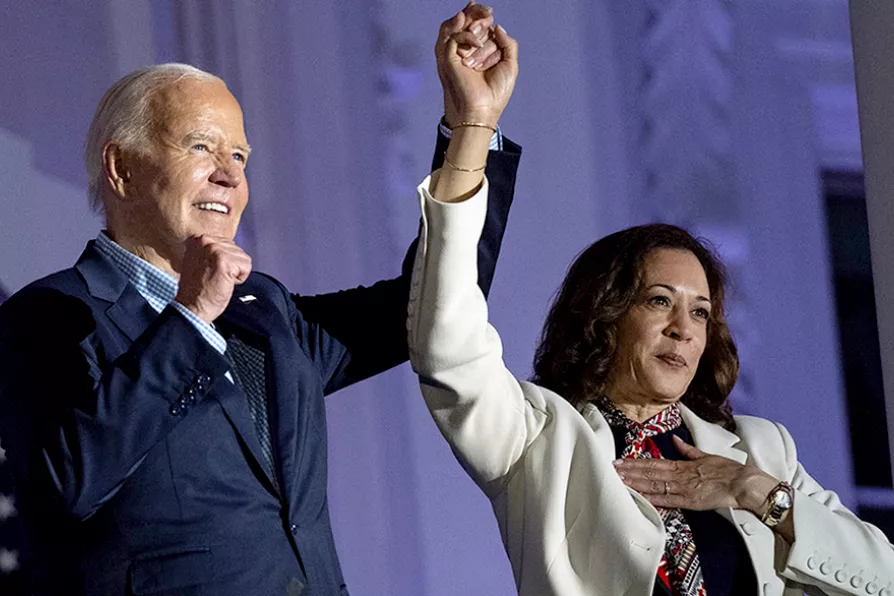From Chartists and Suffragettes to Irish republicans and today’s Palestine activists, the treatment of hunger strikers exposes a consistent pattern in how the British state represses those it deems political prisoners, says KEITH FLETT

 THE BIDEN BURDEN: Joe Biden and Kamala Harris
THE BIDEN BURDEN: Joe Biden and Kamala Harris
DONALD TRUMP was facing an easy ride to the White House when he was matched against Joe Biden. Now he has to face off against Kamala Harris things look very different. Trump has good reason to be scared.
He might even lose, again, although it is quite likely he will claim he won, against all the evidence. But he knows now he is in a race.
US presidential elections are usually consequential, even if those consequences are often surprising. After all, it was not the non-WASP US golden boy JFK who ended the Vietnam war. That was forced on Tricky Dickie Nixon, who was later forced to resign from office in disgrace.

ANDREW MURRAY looks back on the ignominious career of the former US vice-president, who died earlier this week

STEPHEN ARNELL casts a critical eye over the sudden rash of challenges to the two-party system on both sides of the Atlantic, noting that today’s performative populist politics sadly lacks Roosevelt’s progressive ‘Bull Moose’ vision of the early 20th century












